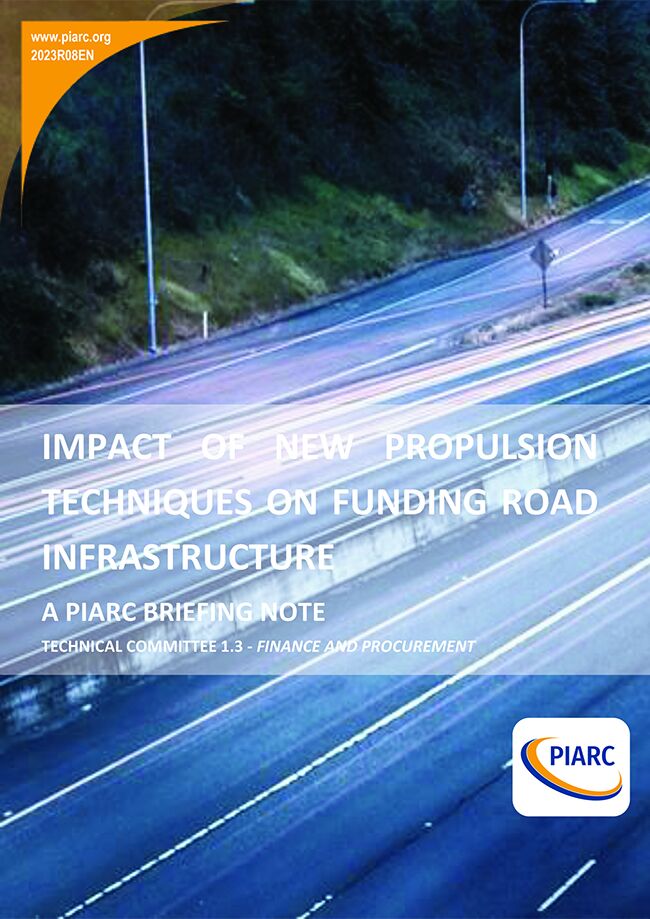Impact of New Propulsion Techniques on Funding Road Infrastructure - Briefing Note

This Briefing Note (BN) analyzes the impacts of modern advancements in vehicle’s propulsion techniques on the funding of road infrastructures at international level, considering the general and progressive shift to alternative fuels for the decarbonization of the road infrastructure and mobility sector worldwide.
In particular, the BN explains how, in the next years, probably the evolution of these new propulsion techniques is going to make current traditional fuel taxes (e.g. fossil fuels as gasoline, diesel) an unsustainable “stand-alone” source of funding for the sector (entire national road networks and/or single relevant road infrastructures). It researches on how governments and road administrations are reacting about it, rethinking the possible diverse sources of funding and their sustainable mix. Considering different geographic, socio-economic, regulatory and infrastructure conditions, the BN describes how these current and progressive technological advancements in vehicles do not have the same time horizon and similar effects on the road sector funding (and on their economies) for each region and single countries; thus, there are different approaches and viable solutions available.
Given the huge amount of resources needed for funding the road networks, the BN lists a number of alternative funding methods to fuel taxation (e.g. transportation taxes on electricity and/or alternative fuels, vehicle miles traveled taxes, taxation on transport network companies) but, at the moment and definitely in the mid-term, these methods should be considered as complementary to other existing and more prominent schemes of funding (e.g. direct tolling or also vignette applied to the different final users, as light-vehicles and trucks, or the value capture, or schemes as the PPPs). Moreover, at least in the mid-term, traditional fossil fuel taxation will remain a relevant source of public funding for the sector, also with the general public budgets and the miscellaneous vehicle taxes.
Furthermore, the analysis and the conclusions of this BN highlight the difficulties to give a clear and univocal dimension of these impacts. However, both the wider application of existing schemes of funding and the deployment of alternative mechanisms and sources, will be challenging and may face substantial public resistance. Therefore, understanding the main factors affecting acceptability of alternative funding methods, will be quite important especially in these years of fast-growing technological evolution of the road and mobility sector at international level.
Information sheet
- Date: 2023
- Author(s): Comité technique / Technical Committee / Comité Técnico 2020-2023 1.3 Financement et passation des marchés / Finance and Procurement / Finanzas y contratación
- Domain(s): Financing of Road System
- Type: Briefing Note
- PIARC Ref.: 2023R08EN
- ISBN: 978-2-84060-763-2
- Number of pages: 27